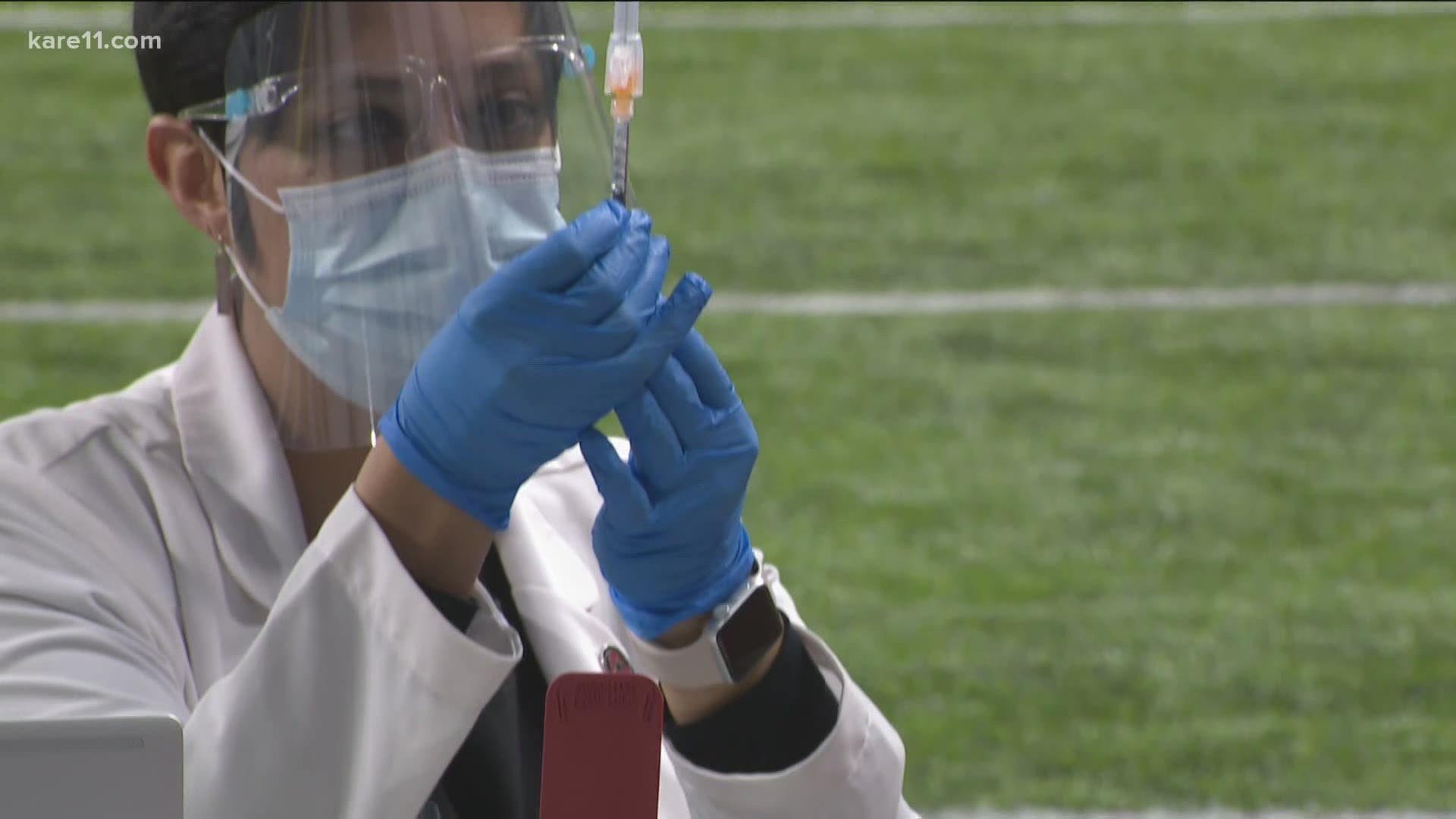As of Wednesday, the Minnesota Department of Health says more than 2.6 million Minnesotans are now fully vaccinated against COVID-19.
Doctors say that one way to continue increasing vaccinations is to move away from injecting them. Some people have a real fear of needles and the "next generation" of treatment might help, like the possibility of a pill or nasal spray.
While the injectable vaccines were created quickly and effectively, Allina Health Dr. Frank Rhame says improvements are important.
He notes there are nearly 600 new vaccines and treatments in the the works just for COVID-19 that are listed by the non-profit think tank the Milken Institute.
"I knew it was a lot," said Dr. Rhame. "But I didn't realize it was that much."
The surprising number of products in development includes heart pumps and nerve stimulation devices, along with nasal and oral treatments, some of which already exist to treat the flu and typhoid fever.
Dr. Rhame doesn't think any of it will be on the market for at least another two years to treat COVID. In fact, he says no proposed oral treatment has passed phase one.
"It's an exciting possibility, but that one I think people are going to have to scrutinize more vigorously," said Dr. Rhame. "It would have the potential of eliminating that half of the side effect of vaccines."
Dr. Rhame says anything besides a shot could be advantageous. He says, not only would it minimize injection site side effects, like a painful arm - it also decreases hesitancy for people wary of needles. He stressed the importance of vaccinating more than 70% of people to reach herd immunity.
"Herd immunity is very important for people who can't get full protection from vaccines and it may require more than 70%, so something like the oral vaccine may get us to herd immunity when we couldn't get to it otherwise," said Dr. Rhame.
Experts also think the next wave of vaccines could be cheaper and easier to use. But Dr. Rhame says it's unlikely you'll ever be able to administer one by yourself at home.
"Although, it would certainly be much easier to have less highly-trained people administering it," said Dr. Rhame.

